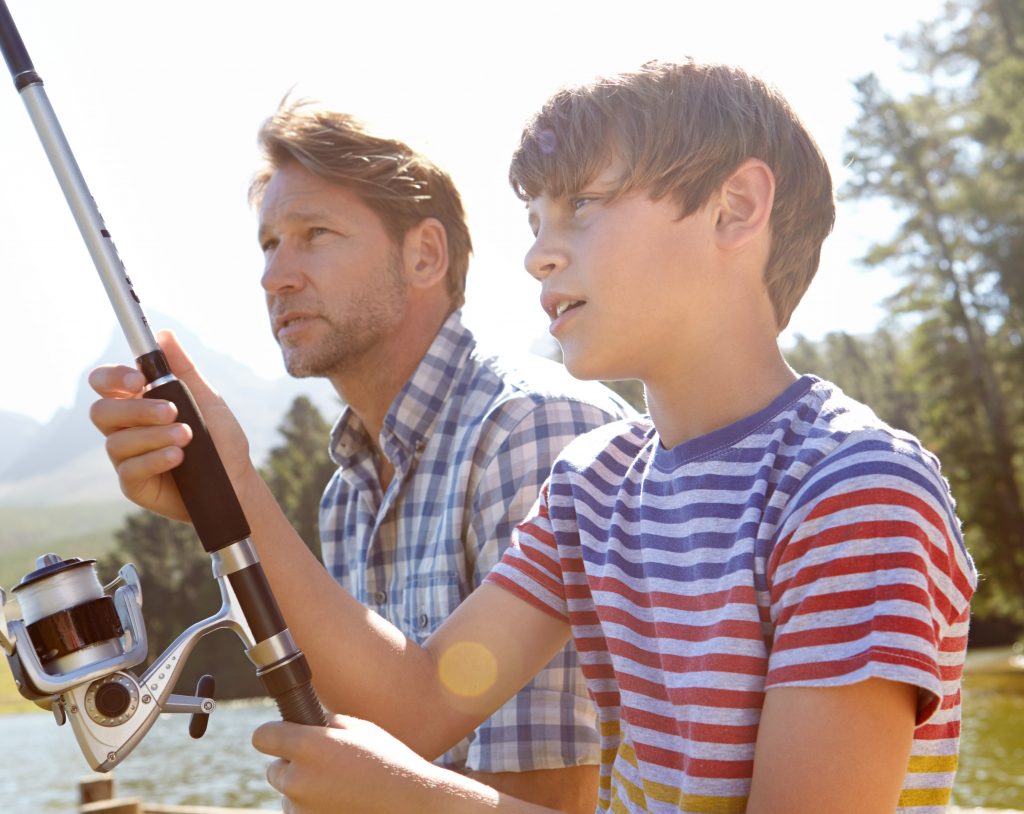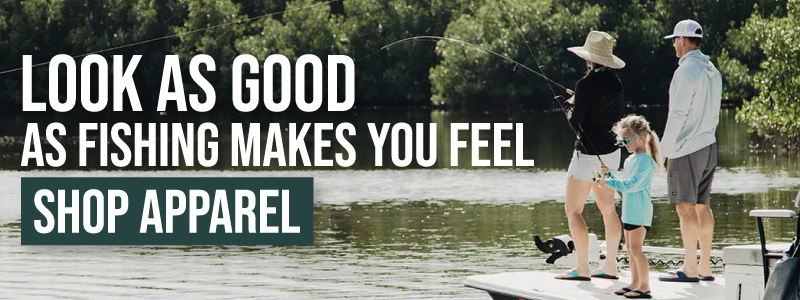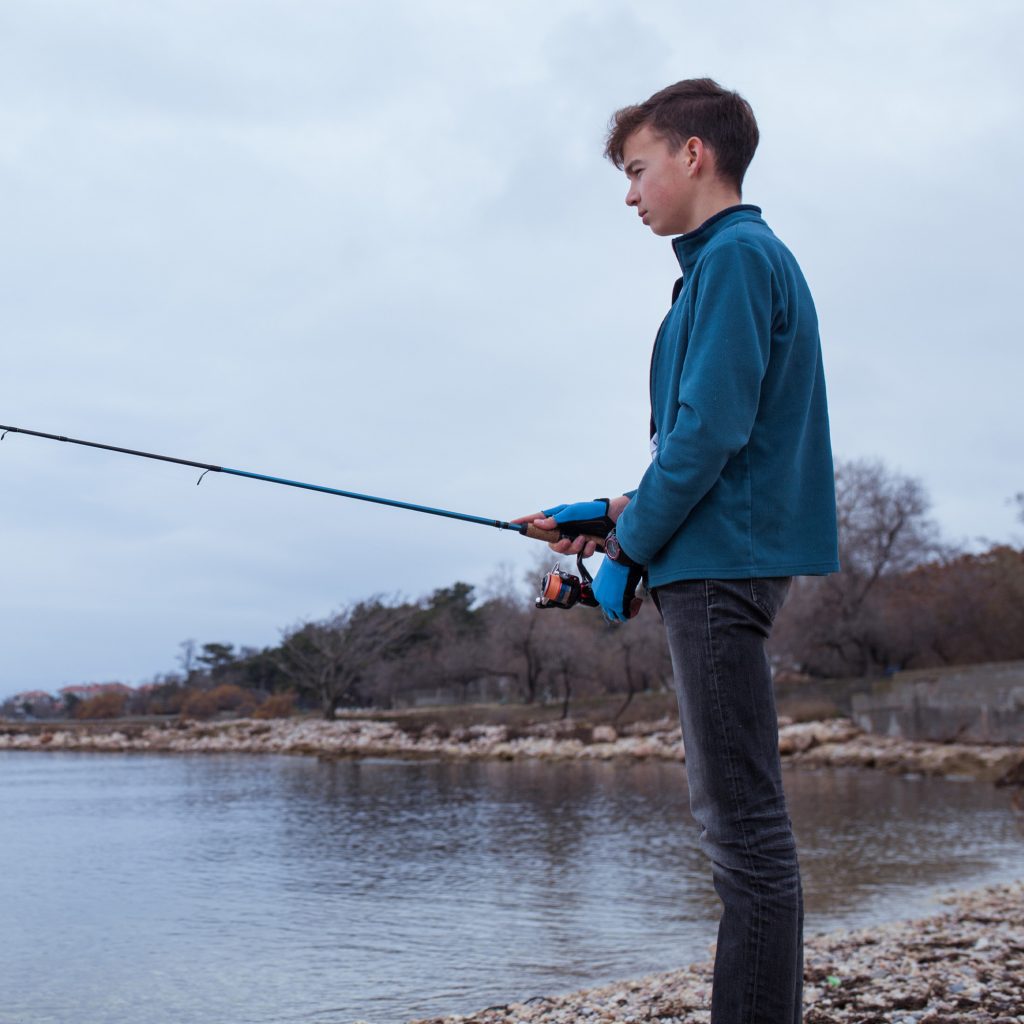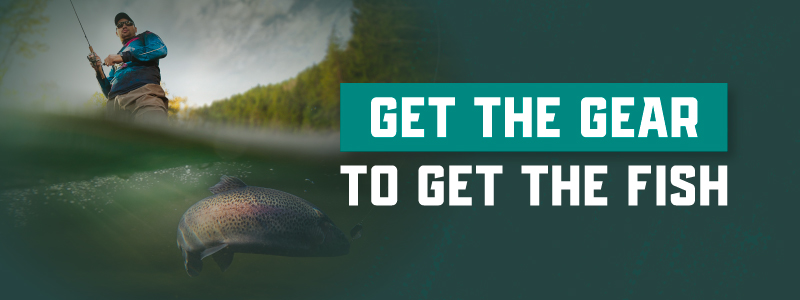The Rise of the Next Generation of Bass Anglers: The Youth Angler Movement
PartsVu Xchange Talks Boating spoke with Jason Bradstreet.
Jason is a veteran bass angler with over 40 years of on-the-water experience. He grew up fishing with his dad, a well-known Central Florida guide and tournament fisherman.
Jason and his wife have six kids and have been active in the foster/adoptive community for the past twenty-one years. He enjoys passing his love of fishing down to all of his children. He also serves as a boat captain and coach to two of them, who compete in state, national, and international level events.
Jason has also been an outspoken advocate for youth fishing. He is heavily involved at many levels in the high school, college, and professional worlds of bass fishing. He wants to see the sport grow and be enjoyed by more people, emphasizing the youth angler movement.
In addition to his involvement in competitive fishing, he is also a writer and content creator in the industry. He is the Editor-in-Chief for Bassfishinginsider.com, a site quickly becoming the go-to source for bass fishing information.
Want to listen to the podcast? You can find PartsVu Xchange Talks Boating on Apple Podcasts, Spotify, Amazon Music, iHeart Radio, and Stitcher.
How would you describe the growth of bass fishing, especially for younger bass anglers?
Jason: Bass fishing is on fire right now, and I think it will continue to stay that way for a long time.
I think the genesis of the growth in the sport came along with COVID, which was terrible, but pushed the population towards more outdoor activities. The virus was a catalyst for people to start looking for new outlets to be active, especially when many mainstream sports like baseball, football, and basketball shut down.

How has the opportunity to compete in youth bass fishing tournaments changed over the last few years?
Jason: We are in Florida, and I’ve witnessed significant growth since we started tournament fishing here. Tournament organizers capitalized on the renewed interest in fishing by offering more opportunities for kids to get involved. As a result, the influx of younger bass anglers into the sport sparked solid growth in the competitive side of fishing.
Bassmaster, Major League Fishing, and other large trails have arms of their organizations dedicated to youth fishing. I’ve spoken to many touring professionals and industry leaders about the youth movement. It’s widely recognized that the future of the sport relies heavily on the next generation of anglers. So, these tournaments are a huge part of long-term plans for the sustained growth of the sport.
Can you describe opportunities available to fish in college?
Jason: It’s incredible to see how far the sport has come. Kids have the opportunity to pursue their passion for fishing while getting an education. There are club teams and scholarship opportunities at many colleges and universities, from large institutions like Clemson and Auburn to smaller schools like Lander. Seeing how things have evolved to mirror some of the opportunities available in other college sports is neat.
Is there a typical path that a kid takes to get started in tournaments?
Jason: Yes and no. We are active in Florid Bass Nation, and I’ve seen kids from all walks of life and experience get involved. I’ve seen kids get involved as young as eight or nine who are raw but beyond excited to have the chance to fish in a tournament. After a few years, they may be ready to compete for state championships or even a national-level event.
On the other hand, some kids come in with plenty of experience. For example, they may have grown up with relatives that actively fish tournaments or work in the fishing industry, so they come in with a little more experience and knowledge.
In any case, there is ample opportunity for young bass anglers to fish at many different levels in the sport. It’s an activity built for participation at many stages of experience.
Is there a logical track for kids interested in starting to tournament fish?
Jason: First, start fishing local waters close to home. Spend time ensuring that you understand the basics of fishing and become comfortable being on a boat, emphasizing the ins and outs of boat safety. Next, I would recommend getting involved locally by contacting an area club to start fishing in smaller-scale tournaments.
After that, I would reach out to state trail organizers for one of the major organizations like Bassmaster. These tournament trails offer opportunities for kids who have loved ones with boats to get involved, but they also are filled with people who volunteer their time and boat resources to serve as captains for kids without boats.
These boat captains are amazing people. Most importantly, they use fishing to help teach character and instill life skills, all so they can ultimately make a lasting positive impact on kids.

How does fitness factor into bass fishing?
Jason: That’s an excellent question. At first glance, you might think fitness isn’t a factor in the sport. However, fishing is a different kind of sport, and fitness plays a unique role.
If someone goes and practices for a tournament for a couple of days, then spends two more days on the water competing, I can assure you that the way bass anglers manage exhaustion and fatigue will play a considerable part in determining their success.
You may not see many anglers running laps or hitting the gym to prepare, but they better make sure they’re sleeping right and managing nutrition so they can take care of their bodies to the best of their ability throughout the season. I would also say that a light weight regiment and cardio workout wouldn’t be a bad idea to strengthen muscles and help prevent repetitive use injuries.
Can you describe the mental side of fishing?
Jason: Fishing success comes down to mental fitness more than anything. Many people have a misconception that fishing is just a matter of casting, waiting, and reeling in fish. However, at the higher levels, there is much more to it.
Bass fishing requires acute awareness, problem-solving skills, and the ability to put together multi-layered puzzles. For example, when deciding how and where to fish, bass anglers have to factor in a ton of variables like weather, wind, forage, season, fish temperament, fishing pressure, and water temperature, to name a few.
Our family plays chess. Fishing reminds me of solving intricate chess problems in a way. You have a ton of moving pieces, all of which play a significant role in your success. Your job is to figure out how to use those pieces in harmony with each other to maximize your odds of catching the right fish. Additionally, chess teaches you how to solve problems. The most successful anglers are the best at solving problems.
Without mental toughness, you’re toast, and I’ve witnessed the ramifications of mental fatigue firsthand. I’ve seen teams hit the water hard in practice, pushing themselves to the max, only to find that they’ve burnt their mental reserve tanks by launch time on day one.
If a team doesn’t maintain high levels of focus, they can’t break down problems and figure out fishing patterns like they need to. So, mental fitness is probably one of the most significant components of success for bass anglers.

Do you think the younger generation of digital natives has an advantage in the age of fishing electronics, or is it possible they rely too much on these kinds of tools?
Jason: I think it’s a fine line to walk between using your intuition and observation skills and relying on electronics. However, I will say that you may miss the boat if you’re not using electronics.
I didn’t grow up fishing with these high-tech tools, so I was and still am predominantly a shallow-water angler.
Two of my kids fish as a team in high school events. Kamden loves to fish shallow by using his eyes and senses and is very good at it. He models a lot of his fishing after someone like John Cox, one of the most successful professional bass anglers. On the other hand, Drew is a technology guy and has spent a good amount of time learning how to be efficient with our boat’s electronics. He understands the intricacies of shallow-water fishing but also likes to incorporate technology into an overall game plan when applicable. Both approaches work well, and they complement each other nicely.
I think it will become increasingly difficult to compete without putting your electronics to use. The trick is not getting sucked into overuse. You’ve got to be careful not to rely on them too much, or you may miss the proverbial “forest for the trees.”
What are some of the tournament series for kids that people should be aware of if they want to get involved?
Jason: My recommendation would be to get in touch with a local club close to home first. After getting some local experience, contact your state trail administrator for information on the state trail. Bassmaster and Major League Fishing are two of the main organizations we’ve been involved with. Contacting them would be a good place to start. They are two big players in the industry, but there are plenty of other well-organized events and trails to choose from.
What can you share with us about college bass fishing scholarships?
Jason: I’ve learned a lot about the fishing scholarships over the last couple of years since I have a senior who is now contemplating his future in the sport.
Like other sports, there are varying levels of scholarships available in fishing. Some anglers go on to fish in college by combining fishing and academic scholarships. Others fish in college by competing on club teams where there is expense assistance instead of scholarships. Suffice it to say that there are ample opportunities to continue to pursue the sport while furthering education.
Bassmaster even launched the first-ever High School Combine last year, which we attended. At the event, anglers had the chance to showcase their skills in a battery of tests and competitions throughout the weekend-long event. It was a chance for coaches to observe competency and talent in a controlled environment.

Additionally, and perhaps most importantly, anglers had opportunities to speak to more than 28 college coaches in attendance. It was an incredible event full of face time for interviews and discussions about the potential for scholarships at the participating schools.
The next combine is right around the corner from September 16-18 if anyone is interested.
Have you seen college coaches attending tournaments looking to recruit?
Jason: We have talked to many coaches at various events throughout the season. I’ve also spoken to coaches at industry-wide events like ICAST. Coaches are very active in working to build their respective programs.
Any last words on how kids can get involved?
Jason: First, if anyone is interested in getting involved and needs a little direction, they are more than welcome to contact me at bassfishinginsider.com. Just visit the site and click on one of the social media links at the top of the page to send me a private message.
Second, start by finding a youth bass fishing club. If you can’t find a youth club, contact an adult club for directions on who might be able to help. Also, if your high school doesn’t have a club, it’s relatively easy to form one. You can start by getting in touch with your state director.
Finally, a call to Bassmaster or Major League Fishing would help you understand who to contact to get the ball rolling. Both national organizations are super helpful and interested in providing information to get kids started as bass anglers.
Please check out bassfisinginsider.com for bass fishing tips and industry news. Jason also hosts a Bass Fishing Insider Facebook group, an active community of bass fishing enthusiasts.
The post The Rise of the Next Generation of Bass Anglers: The Youth Angler Movement appeared first on PartsVu Xchange.
